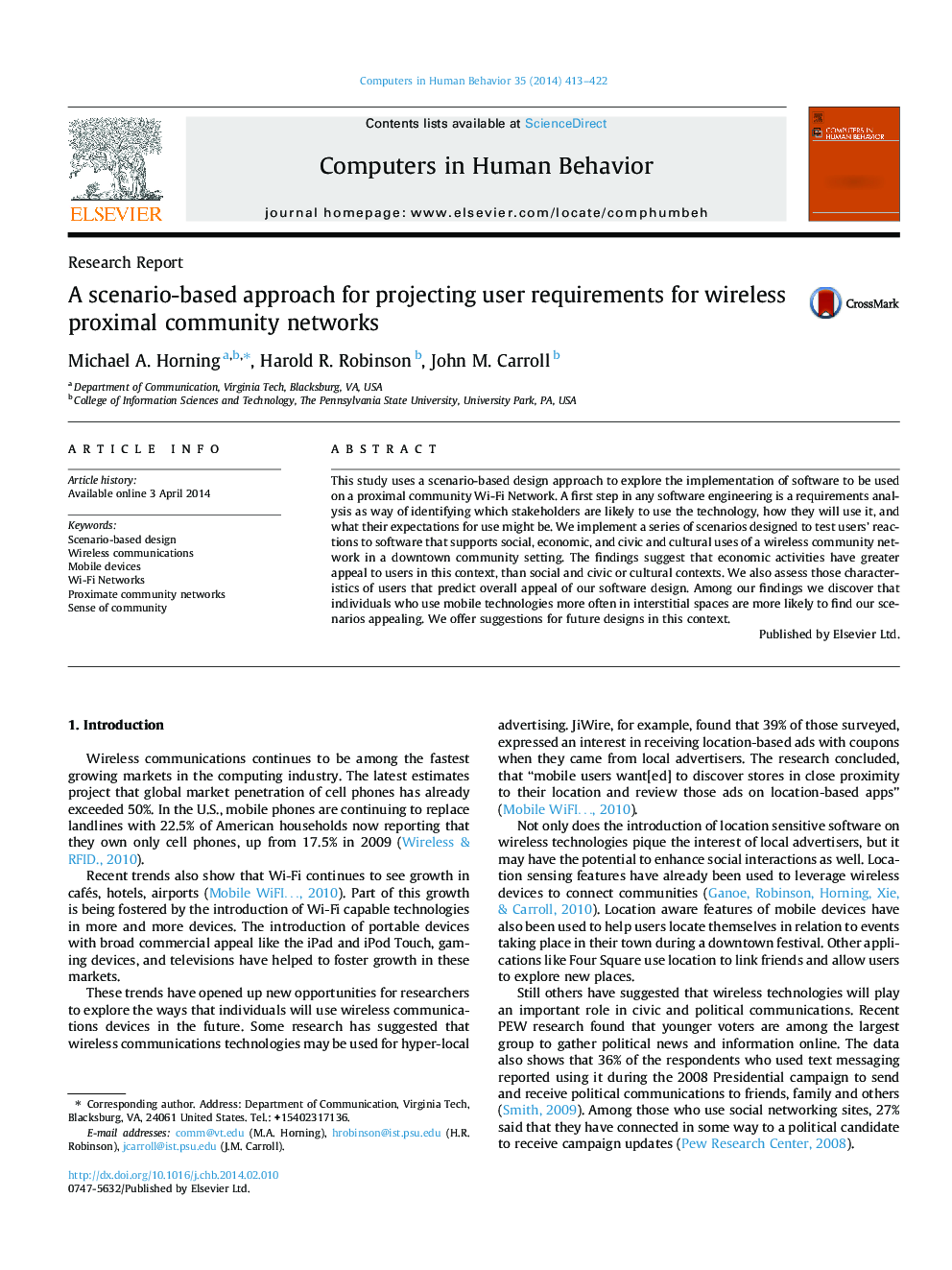| Article ID | Journal | Published Year | Pages | File Type |
|---|---|---|---|---|
| 350540 | Computers in Human Behavior | 2014 | 10 Pages |
•We use a scenario-based approach to test designs for a community wireless network.•We find predictors for social, economic and civic/cultural uses of mobile devices.•We develop a new scale for sense of community in downtown settings.•We find that interstitial spaces consistently predict an interest in our scenarios.•Sense of community factors also influence interest in our application’s design.
This study uses a scenario-based design approach to explore the implementation of software to be used on a proximal community Wi-Fi Network. A first step in any software engineering is a requirements analysis as way of identifying which stakeholders are likely to use the technology, how they will use it, and what their expectations for use might be. We implement a series of scenarios designed to test users’ reactions to software that supports social, economic, and civic and cultural uses of a wireless community network in a downtown community setting. The findings suggest that economic activities have greater appeal to users in this context, than social and civic or cultural contexts. We also assess those characteristics of users that predict overall appeal of our software design. Among our findings we discover that individuals who use mobile technologies more often in interstitial spaces are more likely to find our scenarios appealing. We offer suggestions for future designs in this context.
